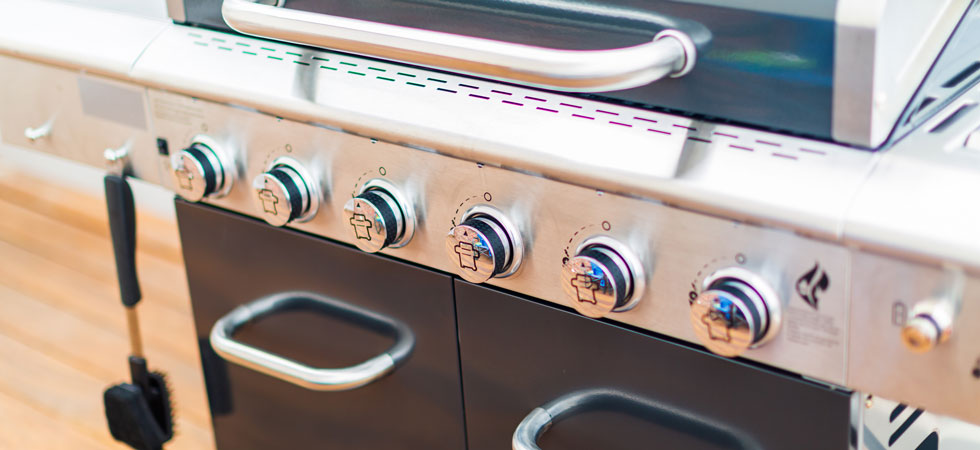
In a recent decision, a federal court in Puerto Rico dismissed a personal injury lawsuit filed against Worthington Cylinder Corporation. The plaintiffs alleged that propane leaked through a defective valve on a propane cylinder and that they were injured in the resulting ignition of the propane.
The court disqualified the experts offered by the plaintiffs in support of their claims and dismissed the lawsuit against Worthington. The case is Muniz Negron v. Worthington Cylinder Corporation.
20-Pound Cylinder
In April 2016, Edwin Muniz Negron purchased a 20-pound propane cylinder at the Sam’s Club in Ponce, Puerto Rico. The cylinder was manufactured by Worthington. He had the cylinder filled at a local propane distributor and then took it home. Muniz Negron’s plan was to connect the propane cylinder to a gas clothes dryer. He used a hose and regulator to make the connection. He attached the hose to the dryer and to a pressure regulator. He then attached the regulator to the outlet of the service valve on the propane cylinder.
Legal documents state that to connect the regulator to the cylinder valve, Muniz Negron “rotated the regulator with his hand, hand-tightened it, and then took a wrench and basically tightened it between a half and a complete turn.” This setup worked well for three months. Then, on July 24, Muniz Negron decided to switch the propane cylinder from the dryer to a barbeque grill.
Explosion & Injuries
Muniz Negron first turned the cylinder valve off. He then used a wrench to unscrew the regulator from the cylinder valve. However, when he disconnected the regulator from the valve outlet, propane “poured out” of the valve. Muniz Negron tried to reconnect the regulator to the valve outlet with the help of a friend, Franchelis Ortiz Torres. However, in that process the leaking gas ignited, and an explosion occurred. Muniz Negron and Ortiz Torres sustained burn injuries to their hands and legs. They filed suit against Worthington.
The central focus of the lawsuit was the cylinder valve’s safety mechanism that was designed to prevent the flow of gas through the valve when the regulator was disconnected. Inside the female valve outlet was a POL connector that connected the regulator to the valve. Two experts hired by the plaintiffs pointed to damage on the rubber O-ring seal at the connection point in this insert. This, they said, was damaged and allowed gas to flow through the valve when the regulator was disconnected.
Damaged O-Ring
According to the plaintiffs’ experts, the damage to the O-ring was the result of a manufacturing defect. They added that the “interior threaded part” that contained the O-ring was fractured and that this fracture was the cause of the damage to the O-ring. This fracture, they said, happened because the threaded connection could not withstand the pressure of the propane in the cylinder. So, they argued, the threaded connection was defectively designed.
Finally, these experts attacked the valve itself, arguing that it could not close completely because “the stem of the handle of the valve does not have exterior thread.” If the valve could have been closed completely, they reasoned, the incident would have been prevented even though the O-ring failed.
Worthington disputed all these allegations, and it filed a motion to disallow the opinions of the plaintiffs’ experts. Worthington argued that the experts were not qualified to render these opinions and that their methodology offered in support of the opinions was flawed. Worthington also filed a motion for summary judgment, arguing that the plaintiffs’ claims of design and manufacturing defect failed as a matter of law. The court agreed, and it granted both motions.
Unqualified Experts
The court first addressed the qualifications of the plaintiffs’ experts. It ruled they are “not qualified to testify as experts in this case about alleged design, manufacturing or warning defects in the propane cylinder or the valve in question.”
The first expert, while having spent several decades working in the propane industry, admitted that he “does not have any knowledge, skill, experience, training or education in the design and manufacture of propane gas cylinders and propane gas valves or in the adequacy of warnings and thus is unqualified to testify about defects in this case.” And while the second expert was a mechanical engineer, he admitted that he “lacks knowledge, skill, experience, training or education in the design and manufacture of propane gas cylinders and propane gas valves.”
The court also concluded that “plaintiffs’ experts’ opinions are not the product of reliable principles and methods.” In support of this conclusion, the court noted that neither expert had conducted any kind of testing to validate the opinions they offered, nor did they consult or cite third-party sources of data to support their opinions.
No Alternative Design
The court rejected the manufacturing defect claim because neither expert had “compared the valve involved in the accident with the manufacturer’s plans for the valve, or other valves from the same product line, to identify any deviation or non-conformance in the valve or its components such as the seal.”
On the design defect claim, the court noted that “no evidence of ordinary consumers’ expectations regarding the safety of gas propane valves was proffered by plaintiffs,” and that “neither of plaintiffs’ proffered experts developed an alternate design or otherwise performed any testing to support their opinions.”
The court rejected the plaintiffs’ failure to warn claim because they did not produce “any evidence that Worthington knew or should have known of a risk inherent in the product” and did not offer “alternative warnings that should have been provided with the valve or cylinder.” Plaintiffs’ final claim was for “product malfunction” under Puerto Rico law.
The court rejected this claim because the plaintiffs had presented no evidence to rule out the overtightening of the POL nut as the cause of the damage to the O-ring and the subsequent gas leak. (Worthington had argued this was the real cause of the incident.) The court specifically noted that plaintiffs’ experts “did not do any subsequent testing or analysis to reach the conclusion that the valve was not over-torqued.” The court granted both of Worthington’s motions and dismissed the lawsuit with prejudice.


